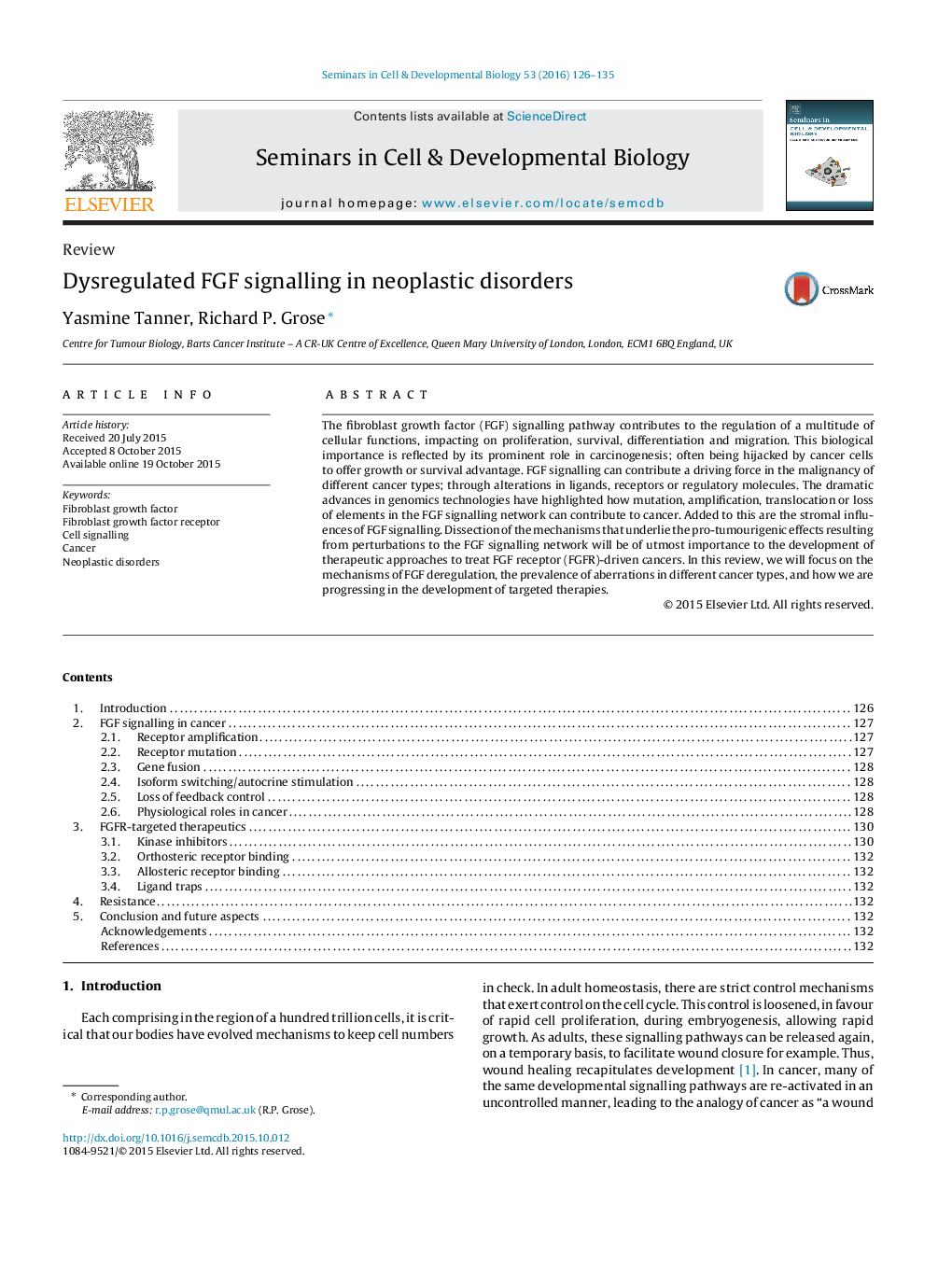| Article ID | Journal | Published Year | Pages | File Type |
|---|---|---|---|---|
| 8480122 | Seminars in Cell & Developmental Biology | 2016 | 10 Pages |
Abstract
The fibroblast growth factor (FGF) signalling pathway contributes to the regulation of a multitude of cellular functions, impacting on proliferation, survival, differentiation and migration. This biological importance is reflected by its prominent role in carcinogenesis; often being hijacked by cancer cells to offer growth or survival advantage. FGF signalling can contribute a driving force in the malignancy of different cancer types; through alterations in ligands, receptors or regulatory molecules. The dramatic advances in genomics technologies have highlighted how mutation, amplification, translocation or loss of elements in the FGF signalling network can contribute to cancer. Added to this are the stromal influences of FGF signalling. Dissection of the mechanisms that underlie the pro-tumourigenic effects resulting from perturbations to the FGF signalling network will be of utmost importance to the development of therapeutic approaches to treat FGF receptor (FGFR)-driven cancers. In this review, we will focus on the mechanisms of FGF deregulation, the prevalence of aberrations in different cancer types, and how we are progressing in the development of targeted therapies.
Related Topics
Life Sciences
Biochemistry, Genetics and Molecular Biology
Cell Biology
Authors
Yasmine Tanner, Richard P. Grose,
